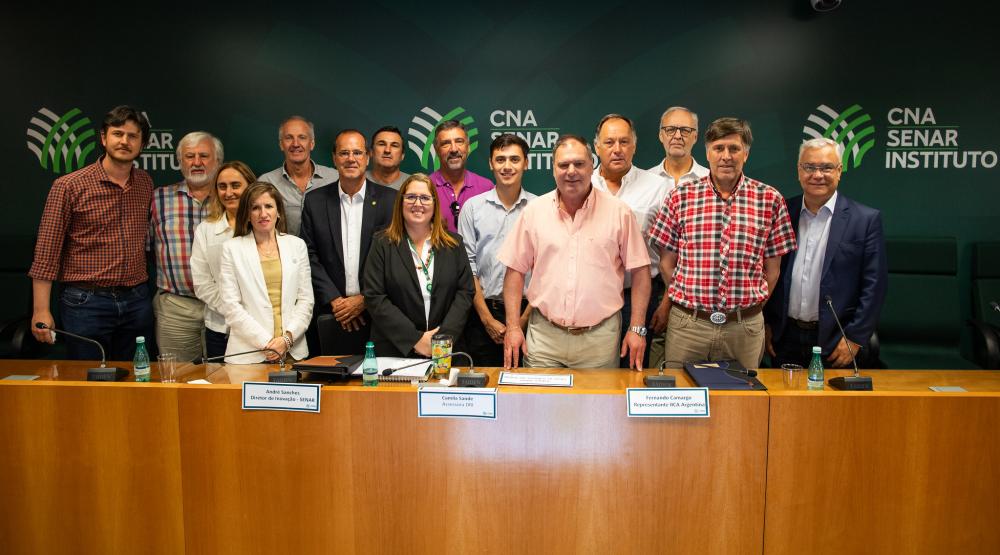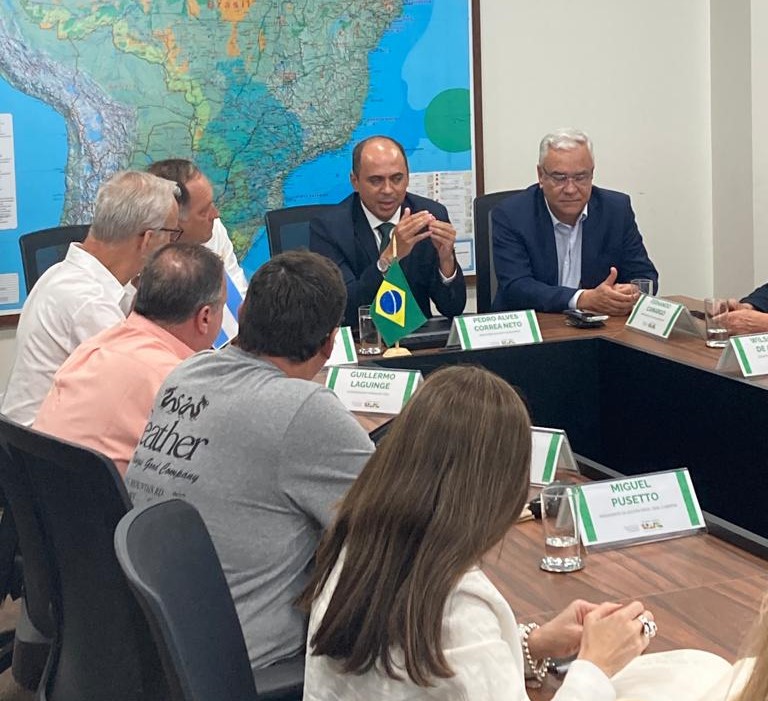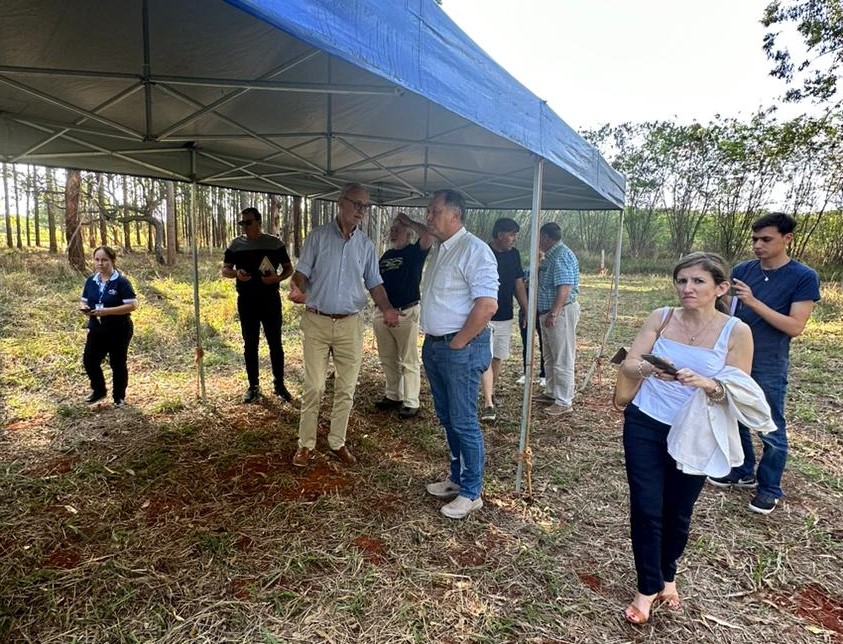Agricultural producers from Argentina and Brazil strengthen ties during a visit organized by IICA

Brasilia, 30 October 2023 (IICA) - Argentine agricultural producers from Santa Fe and Córdoba, two of the country's main productive provinces, visited Brasilia, the capital of Brazil, for three days of work during which they exchanged experiences on the progress made in agriculture in the two countries in favor of greater sustainability.
The visit was organized by the Inter-American Institute for Cooperation on Agriculture (IICA) and the producers were accompanied by the IICA Representative in Argentina, Fernando Camargo.
“It was a fruitful visit that fostered exchange between producers from these two countries, which are not only agricultural powers but also true guarantors of world food security. The focus was on the progress made by both nations to improve productivity and resilience in the face of climate change, and how to do it using fewer natural resources. Both in Argentina and Brazil, agriculture is undergoing a transformation, with science and technology playing a central role,” said Camargo.

The National Confederation of Agriculture and Livestock (CNA), which represents the interests of the sector in Brazil, was one of the sites visited. The International Relations advisor of this organization, Camila Sande, described the projects that focus on trade promotion and the role of technology, innovation, rural credit and technical assistance in the modernization of agriculture in rural Brazil.
The Director of Innovation of the National Rural Learning Service (SENAR), André Sanches, referred to the vocational and social training programs, courses and assistance that promote a better quality of life for farmers. Camargo, for his part, referred to the relevance of Brazilian agriculture and the sector's capacity to produce food in harmony with the environment.
At the headquarters of the Brazilian Ministry of Agriculture and Livestock, the visiting producers learned in detail about the country's agricultural public policies and their progress to reduce greenhouse gas emissions, which cause climate change. There they were received by Pedro Neto, Deputy Secretary of Innovation, Rural Development and Irrigation of the Ministry.
Production and Conservation

A key moment of the visit was the tour of the Brazilian Agricultural Research Corporation (EMBRAPA), an institution with global prestige in the generation and dissemination of new technologies for food production.
At EMBRAPA, producers participated in a tour of Embrapa Cerrados, one of the 43 units of the institution, which was created in 1973 to visibilize the key features of agricultural production in the Brazilian Cerrado, an ecosystem of enormous ecological value, and the efforts in favor of environmental and social sustainability. Agrosilvopastoral systems, which combine agricultural and livestock activity with the presence of forests, play an important role for environmentally responsible production.
Agricultural production and the preservation of natural resources and biodiversity of the Cerrado, which occupies almost 2 million square kilometers, was also the central theme in the visit to the COOPA-DF Agricultural Cooperative, which for 44 years has promoted sustainable production in the valuable ecosystem of the Cerrado.
COOPA-DF has 140 members and uses cooperativism as a fundamental tool for social and economic promotion and for the best quality of life of the inhabitants of rural Brazil.
More information:
Institutional Communication Division.
comunicacion.institucional@iica.int